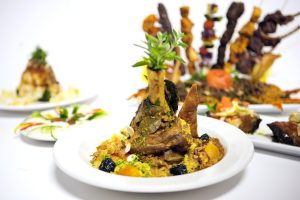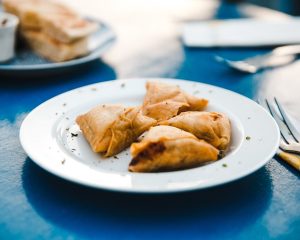The leading authentic restaurants marrakech city offers to travellers and visitors are featured as part of the list of hand-picked restaurants that travellers will find gastronomically gratifying. Many Marrakech travelers who used The Marrakech Top Spot list as a guide, were quite happy with the results of their culinary adventure. The delight they experienced in savouring dishes that captured the essence of traditional Moroccan cuisine was truly remarkable.
La Collégiale an Example of an Excellent Culinary Find in Marrakech
La Collégiale, is the new bohemian French restaurant that lies  in the heart of the city’s trendy district of Guéliz. Diners profess to having extraordinary culinary experience in savouring authentic traditional Moroccan dishes while in the midst of a modern but enchanting setting. The wide roads are full of fancy cars and stylishly-dressed men and women going in and out of posh hotels and visiting fashionable malls that give the city of Marrakech a progressive appearance.
in the heart of the city’s trendy district of Guéliz. Diners profess to having extraordinary culinary experience in savouring authentic traditional Moroccan dishes while in the midst of a modern but enchanting setting. The wide roads are full of fancy cars and stylishly-dressed men and women going in and out of posh hotels and visiting fashionable malls that give the city of Marrakech a progressive appearance.
As soon as one steps through La Collégiale’s doors, guests are immediately greeted by a warm and relaxing ambience. The menu presents a genuine tribute to the diversity of Moroccan culture, as the choices include classic French cuisine, popular Mediterranean delights and European inspired-recipes that make La Collégiale a gastronomic gem.
Each dish offers an explosion of authentic Moroccan flavours and textures, although the restaurant’s talented chefs also offer dishes with new flavours that are as equally tempting as the traditional meals.
What Exactly Constitutes an Authentic Traditional Moroccan Cuisine?
 Traditional Moroccan cuisine fundamentally revolves around the traditional Berber diet of couscous, lamb and vegetables enhanced by a delicate mix of African and Mediterranean spices. Berbers, by the way, are a race native to North Africa, many of whom migrated to Morocco and Algeria during the Middle Ages. The North African immigrants introduced Berber food like tagines (spiced meat stew), pastillas (meat pies), harira (tomato-based soup), fish chermoula (marinated fish), zealouk (eggplant salad), and mint tea, which is just to mention a few.
Traditional Moroccan cuisine fundamentally revolves around the traditional Berber diet of couscous, lamb and vegetables enhanced by a delicate mix of African and Mediterranean spices. Berbers, by the way, are a race native to North Africa, many of whom migrated to Morocco and Algeria during the Middle Ages. The North African immigrants introduced Berber food like tagines (spiced meat stew), pastillas (meat pies), harira (tomato-based soup), fish chermoula (marinated fish), zealouk (eggplant salad), and mint tea, which is just to mention a few.
Throughout the centuries Berber food evolved as a fusion of Mediterranean and African flavours using spices like cumin, cloves, coriander, garlic, dill, fennel and black pepper and combined with herbs like basil, bay leaf, cinnamon, ginger. lavender, cardamon and sesame seeds.
Moroccan cuisine later on distinguished itself from the typical Berber food, either by adding sugar and salt; or using fruits like apples, figs, plums, pineapples, pears and lemon and almond nuts or walnuts as ingredients. Moroccan cuisine subsequently incorporated culinary influences of Southern Europe by using or adding olive oil, olives and tomatoes because they added depth to the African-Mediterranean fusion of flavours.